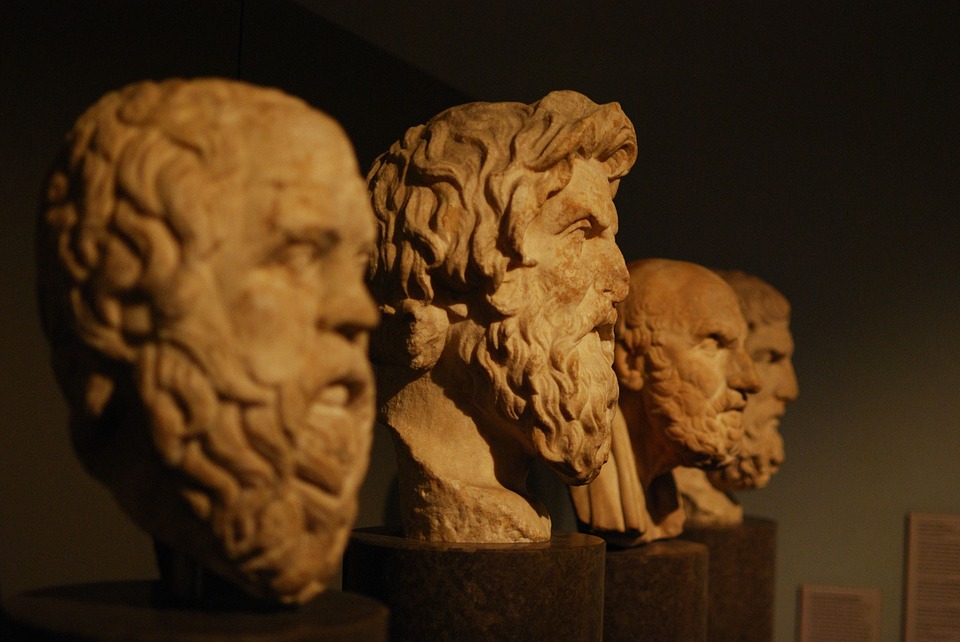Philosophy doesn’t actually have any practical use. But not all things should, right? We enjoy poetry, music, and fairy tales, and none of them has a practical use. Enjoy another philosophy essay example, because our life should be full of impractical but interesting things!
What Do People Find Incompatible With Causal Determinism?
Introduction
There is thought that everything in the world is interconnected. Some people firmly believe that it is impossible to escape from destiny, while others suggest the adage “what goes around, comes around” is still relevant. There is no clear answer as well as the sufficient evidence of the fact that life can be foretold. If that were the case, the role of a person in his own life would be in doubt. The question is whether everything in human`s life can easily succumb to determinism or there are still some aspects which are incompatible with causal determinism.
Definition of Causal Determinism and Its Implications
To answer the following question, firstly it is appropriate to define the causal determinism from a scientific perspective. The causal determinism, according to Kane, is a belief that whatever is or happens, including every human action, must be or happen as it does, given the laws of nature and events which have preceded it in time (Kane 70). Causal determinism provides for only one possible future, one possible way for things to end up. As a result, people seem no longer be in charge of their actions. They simply have to follow a certain pattern of behavior already developed. Since they could never have done other than they did, then a distinguishing feature of persons seems to evaporate and they can not be regarded as moral agents (Snyder 353).
The Complexity and Uniqueness of Human Beings
Considering this from another angle it does not make any sense especially taking into account the complexity of the human body and mind as well as the uniqueness of each individual. A random event could provide room for human freedom and in such a way break the causal chain and nullify determinism. People can’t live their lives according to the scenario without a sign of suddenness, force majeure and deviations from the norms. It means there should be something that separates the Man and “the living doll” in the hands of the puppeteer. Free will, control over instincts and the ability to feel and experience different emotions are on the list for a number of reasons.
Free Will and Self-Determination
To begin with, free will involves the theory that people are free to choose and have a right for self-determination. It means whatever person’s choice was he could have chosen another one, but he did not for some reasons known only to him. Free will serves as a reminder for people that everything happens or will happen depends on them: they can build their future, be both creative and unpredictable.
Moreover, philosophy has replaced the notion of “free will” with “freedom from reliable causation.” At present, a vast majority of people correctly define free as a decision they make for themselves, free of enforcement or undue influence. Dictionaries usually include both definitions: 1 – a voluntary choice or decision ‘I do this of my own free will’; 2 – freedom of humans to make choices that are not determined by prior causes or by divine intervention (“Dictionary By Merriam-Webster: America’s Most-Trusted Online Dictionary”).
The Link Between Instincts, Emotions, and Human Behavior
On account of instincts, the first initial involuntary reactions, they are considered to be the animals’ heritage and still influence human’s behavior. Via consistent socialization, people have managed to learn how to control some of them (e.g., desire to harm other people, steal something to make a profit and so on). It was a necessary measure and condition on which the society is built. However, the instinct for self-preservation is among those which are still difficult to overcome.
Furthermore, there is a strong link between instincts and emotions: instinct produces emotions without explanation and produce quick desire to act. One intuitive hypothesis is that people not only think of brain and bodily activity as straightforwardly compatible with determinism, but they also believe that certain psychological processes depend on something that goes beyond the brain (e.g., an immaterial soul) and that these processes are incompatible with determinism (Bear, Knobe 4). When a person falls in love, it becomes challenging for him to control the actions and think logically, a certain “chemistry” prevents him from usual life. The trick is that people fall in love unexpectedly, but determinism suggests all events are already planned in advance. What is more, such feelings as sorrow and regret may arise only when a person thinks that he could have done things differently.
Conclusion
To conclude, free will, control over instincts and the ability to feel and experience various emotions produce a sort of mismatch between what the theory implies and what happens in people’s lives. It is also possible that the structure of cause and effect isn’t an entirely accurate representation of what is going on, but only a tool people use for mapping out sequences of events. Despite a number of achievements in the theory of causal determinism, it remains a complex area which demands even deeper research that has been already done.
Works Cited
Bear, Adam, and Joshua Knobe. “What Do People Find Incompatible With Causal Determinism?” Cognitive Science, vol 40, no. 8, 2015, pp. 2025-2049. Wiley-Blackwell, doi:10.1111/cogs.12314.
“Dictionary By Merriam-Webster: America’s Most-Trusted Online Dictionary” Merriam-Webster.Com, 2017, https://www.merriam-webster.com
Kane, R.H. “Divine Foreknowledge And Causal Determinism” Southwestern Journal Of Philosophy, vol 9, no. 1, 1978, pp. 69-76. Philosophy Documentation Center, doi:10.5840/swjphil1978919.
Snyder, A. Aaron. “The Paradox Of Determinism” American Philosophical Quarterly, vol 9, no. 4, 1972.
